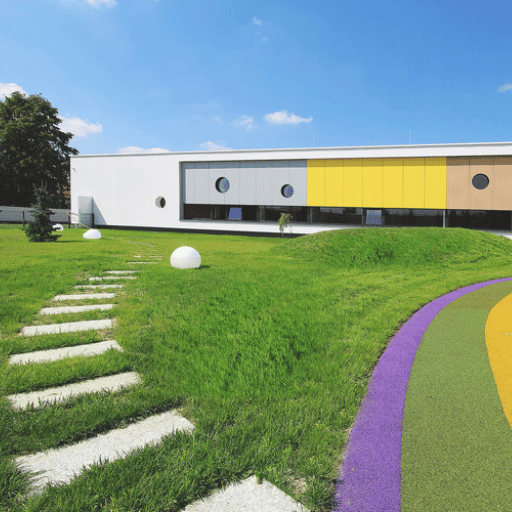Logopeda (Speech Therapist) Role Interview (Przedszkole (Preschool))
In this article, we’ve put together all the information you need to run an interview for a Logopeda (Speech Therapist) in a Przedszkole (Preschool) in Poland. We’ve included a Logopeda (Speech Therapist) job description, job requirements (useful for adding to job advertisements), common job interview questions to ask someone applying for your advertised Logopeda (Speech Therapist) role, follow-up questions to ask your potential new hire and excellent answers that candidates give to Logopeda (Speech Therapist) job interview questions. We’ll also look at what happens in an interview for a Logopeda (Speech Therapist) and the hiring process after the interview.
Logopeda (Speech Therapist) Role Job Description, Requirements, Questions
Role Job Description:
The role of a Logopeda, or Speech Therapist, in Przedszkole (Preschool) in Poland is to assist children with speech and language development, particularly those with communication disorders. The Logopeda works closely with teachers, parents, and other professionals to identify and address speech and language difficulties in children. They develop and implement individualized therapy plans, conduct assessments, and provide intervention strategies to improve communication skills. The Logopeda also collaborates with other professionals to ensure a holistic approach to the child’s development.
Role Job Requirements:
To be successful in this role, a Logopeda should have a strong educational background in speech therapy or a related field. A bachelor’s or master’s degree in speech-language pathology is typically required. Additionally, the Logopeda should possess excellent communication and interpersonal skills to effectively work with children, parents, and other professionals. They should have a deep understanding of speech and language disorders and be familiar with various assessment and intervention techniques. Fluency in both Polish and English is often preferred to effectively communicate with children and their families.
Role Job Interview Questions:
1. Can you describe your experience working with children with communication disorders?
2. How do you assess and diagnose speech and language difficulties in children?
3. What intervention strategies do you use to improve communication skills in children?
4. How do you collaborate with teachers and parents to support a child’s speech and language development?
5. Can you share an example of a challenging case you have worked on and how you addressed it?
Follow-up Questions:
1. How do you adapt your therapy techniques for children with different communication disorders?
2. How do you involve parents in the therapy process and ensure their active participation?
3. Can you explain your approach to working with children who are non-verbal or have limited speech abilities?
4. How do you stay updated with the latest research and advancements in speech therapy?
5. How do you handle situations where a child is resistant or uncooperative during therapy sessions?
Examples of excellent answers from candidates:
1. “In my previous role, I worked with children with a range of communication disorders, including articulation disorders, language delays, and stuttering. I conducted comprehensive assessments to identify the specific areas of difficulty and developed individualized therapy plans to target those areas. I used a combination of play-based activities, visual aids, and technology to engage the children and make therapy sessions enjoyable.”
2. “When working with children with communication disorders, I believe in a collaborative approach. I regularly communicate with teachers and parents to understand the child’s needs and goals. I involve parents in therapy sessions and provide them with strategies to support their child’s communication skills at home. By working together as a team, we can ensure consistent progress and carryover of skills.”
3. “I recently had a case where a child had severe apraxia of speech, making it difficult for them to coordinate the movements required for speech production. I implemented a multi-sensory approach, incorporating tactile cues, visual prompts, and repetitive practice. I also collaborated with an occupational therapist to address any underlying motor difficulties. Over time, the child showed significant improvement in their speech intelligibility.”
4. “To stay updated with the latest research and advancements in speech therapy, I regularly attend conferences, workshops, and webinars. I am an active member of professional organizations and participate in online forums to engage in discussions with other speech therapists. I also make it a point to read research articles and journals to ensure evidence-based practice in my therapy sessions.”
5. “In situations where a child is resistant or uncooperative during therapy sessions, I believe in building a strong rapport and creating a safe and supportive environment. I try to understand the underlying reasons for their resistance and modify my approach accordingly. For example, if a child is anxious, I may incorporate relaxation techniques or visual schedules to help them feel more comfortable. I also involve parents in brainstorming strategies to motivate the child and make therapy sessions more enjoyable.”
Logopeda (Speech Therapist) (Poland) Interview Schedule
To conduct a comprehensive one-hour interview for a Logopeda (Speech Therapist) role in a Przedszkole (Preschool) in Poland, consider the following schedule:
- Introduction and overview of the role (5 minutes)
- Candidate’s experience and skills assessment (15 minutes)
- Job-specific questions (25 minutes)
- Follow-up questions and clarification (10 minutes)
- Candidate’s questions about the role and organization (5 minutes)
Best Practices for Logopeda (Speech Therapist) Candidate Communication
After the interview for your Logopeda (Speech Therapist) role (Poland), it is crucial to keep the candidate informed about the hiring process. Best practices include:
- Sending a personalized thank-you email to the candidate within 24 hours
- Provide a timeline for the Logopeda (Speech Therapist) hiring process and when they can expect to hear back
- Regularly updating the candidate on their Logopeda (Speech Therapist) job application status, even if there are delays
- Offering constructive feedback to unsuccessful candidates to help them improve for future opportunities at your Przedszkole (Preschool)
- Maintaining open and transparent communication throughout the entire process to ensure a positive candidate experience
Ready to start your hiring process?
Click the button above to get our simple-to-use Applicant Tracking System (ATS) that can be used to manage your hiring process.

